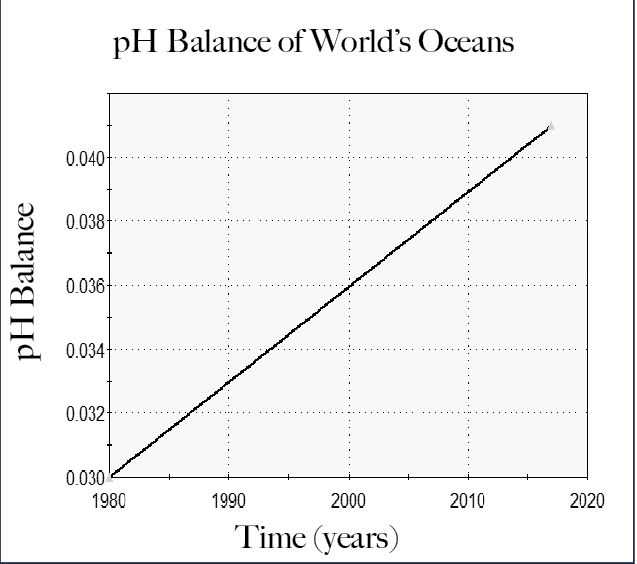Your donation will support the student journalists of Suffolk University. Your contribution will allow us to cover our annual website hosting costs.
Coral on brink of extinction as ocean temps rise
October 25, 2017
Coral reefs are frequently marveled at for their beauty and fragility. However, many individuals often do not realize the integral role that coral reefs play both as a protection mechanism to coastlines and as a home for 25 percent of all marine life. While the coral reefs are vital for the survival of a vast array of organisms, there must be serious reductions to carbon emissions within the next decade to ensure the survival of these biologically diverse ecosystems.
As a result of excess greenhouse gases that are released into the environment, the worst coral bleaching event in recorded history has hit every major coral region on Earth since 2014, according to a recent study by The Guardian. In fact, 50 percent of coral reefs are endangered due to this chemical imbalance in the atmosphere and oceans.
“The ocean is a vast, empty space for the most part and coral reefs are seen as an oasis in the large expanse,” said Matthew Pfannenstiel, a Visitor Educator at the New England Aquarium (NEAQ) in a recent interview with The Suffolk Journal. “Think of the ocean as a desert and the coral reefs as a watering hole with foliage.”
Numerous Suffolk professors feel that it is crucial for society to be aware of global warming and how it is impacting the coral reefs and essentially the human race.
High school teachers are still teaching the science I learned 50 years ago.
— Instructor Anurag Sharma
Associate Biology Professor Carl Merrill recommended to “keep talking” about science and to encourage individuals to think more about fossil fuels and to consider how they can decrease their own usage, in an interview with The Journal.
“Education has been lacking in following the science [on climate change],” said Instructor Anurag Sharma in an interview with The Journal. “High school teachers are still teaching the science I learned 50 years ago. There need to be modern changes so that we create a population that is equipped to follow the data.”
In June, Governor Charlie Baker signed Massachusetts back into the Paris Agreement after President Donald Trump removed the United States from the accord.

The Paris Accord established certain caps on carbon emissions. Now that the U.S. is no longer apart of the Accord, many are concerned that this could potentially be disastrous for the future of the planet.
“Pulling out of the Paris Accord definitely changes things quite a bit,” said Chemistry and Biochemistry Professor Emerita Martha Richmond. “Hopefully visualizing and describing the damages to the coral reefs pushes people to do more.”
Suffolk students have also agreed with Richmond that pulling out of the Paris Accord could have a seriously detrimental impact on the environment.
“There should be more of a concern for climate change,” said senior History and International Relations major Katarina DiPlacido. “It will definitely become more evident soon and then there will be more effects on humans. That’s when we’ll see people want to make changes, but by then it might be too late.”
The current state of the American government has many worried about the long-term consequences the planet may end up suffering if environmental protection regulations are not established or enforced.
“I’m sad that our federal government isn’t doing anything to help the environment that we depend on for survival,” said sophomore Politics, Philosophy and Economics (PPE) major Maddison Mignola.
Some students feel that the political orientation of the state will influence how certain cities will enact policies regarding climate change.
“I feel like mostly Republican states are relaxed in how they enforce environmental regulations which could end up negatively affecting people” said sophomore PPE and Environmental Studies major Lydia Gottwald. “I think that for blue states this may be a call-to-action because they are joining the Paris Accord as individual states.”
Unless there are serious reductions to carbon emissions, practically all coral reef systems will be dead by 2100, according to National Geographic. It is important for nations to act now more than ever to reduce the production of greenhouse gases in order to save an ecosystem that supports not only 25 percent of ocean life, but also a significant amount of human life as well, according to National Geographic.
“The food source is going to disappear,” said Richmond. “All this pollution affects the quality of the water, the sustainability of food, the fishing industry and the sea level.”
Pfannenstiel emphasized that seafood is a nutritional necessity for parts of the world, therefore climate change will ultimately affect how a portion of humans receive their food source.
Sharma told The Journal that corals are dying at a rate that has, “never happened in the history we are able to document.”
Corals are self-sustaining organisms until their environment is altered by some external force – specifically warmer water. Zooxanthellae is the type of algae found in coral that keeps it alive by providing it with food and sugars to survive. When the temperature elevates in an area where there are coral reefs, zooxanthellae is then extracted from the corals, thus creating thermal stress, therefore bleaching the corals with no hope of complete restoration, according to multiple sources.
By making the Earth warmer, the water’s temperature will increase and just a couple degrees can affect coral reefs around the world.
The coral then becomes a dull white color since the zooxanthellae gives the reef its plethora of pastel colors. If the coral is a neon color, it is in the first stages of bleaching.
Water gets warm as a result of carbon emissions being released into the atmosphere through the burning of fossil fuels, coastal erosion, the sea level rising, changes in storm patterns, altered ocean currents and ocean acidification.
“Carbon dioxide is like a blanket that encompasses the Earth and makes it warmer,” said Pfannenstiel. “By making the Earth warmer, the water’s temperature will increase and just a couple degrees can affect coral reefs around the world.”
Carbonic acid is created during a chemical reaction when CO2 and water meet, thus making the ocean more acidic when more CO2 is released into the atmosphere. This acidity is what makes the water substantially warm, causing the corals to experience thermal stress, according to Richmond.
Coral is affected negatively in two instances: the warming of the ocean water as well as the effects that storms and erosion have on the coral by releasing sediment into the ocean that makes algae less productive and, in conjunction, supports the life of the coral, according to Merrill.
Merrill explained that the ocean’s pH level has grown from .03 to .041 in just two decades. The pH level has gone down .001 in the last year, which may not seem like a lot until compared to the stability of the number for centuries, said Merrill.
Many scientists have become frustrated with this issue because of how little control they have over it. Regardless of how much research is done on coral bleaching, it is almost impossible to alter the behavior of society in way that has the power to halt coral bleaching entirely.
Bostonians and the general public alike can help save the reefs around the world from coral bleaching and extinction, according to Pfannenstiel. By voting in local government elections, citizens can work together to protect marine life.
Climate change poses a fundamental and observable threat to numerous ecosystems across the globe. Despite policy emerging from Capitol Hill, members of the Suffolk community remain concerned and weary over the future of the Earth’s oceans.
“Because climate change is a relatively new subject, people don’t really know much about it right now,” said DiPlacido. “There should be more of a concern for climate change, before it’s too late.”
